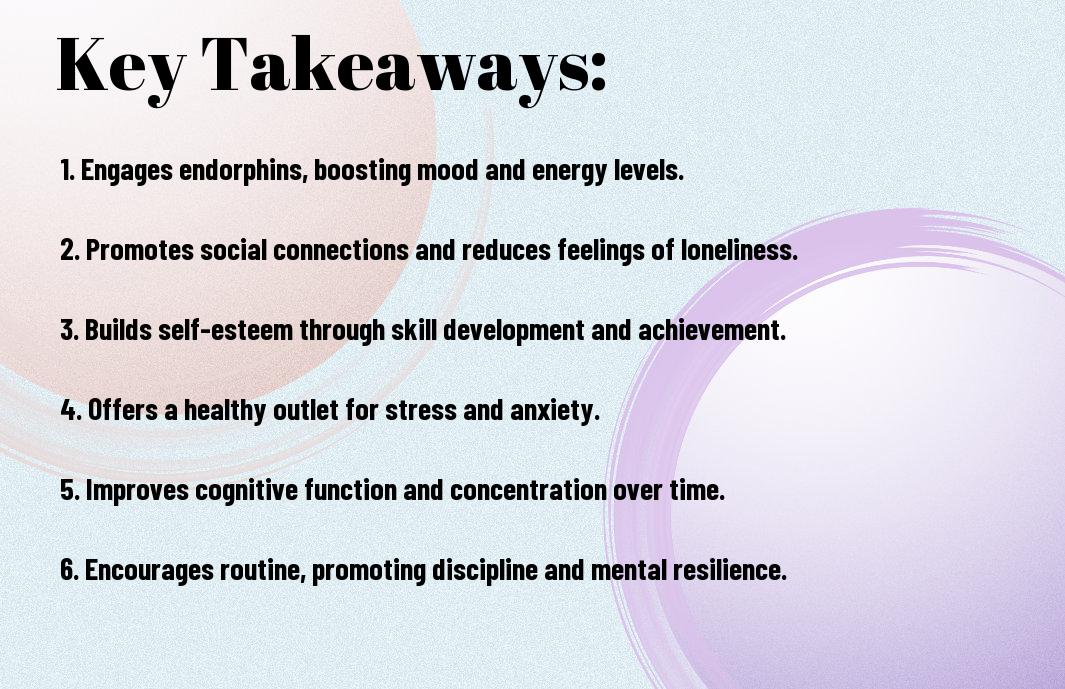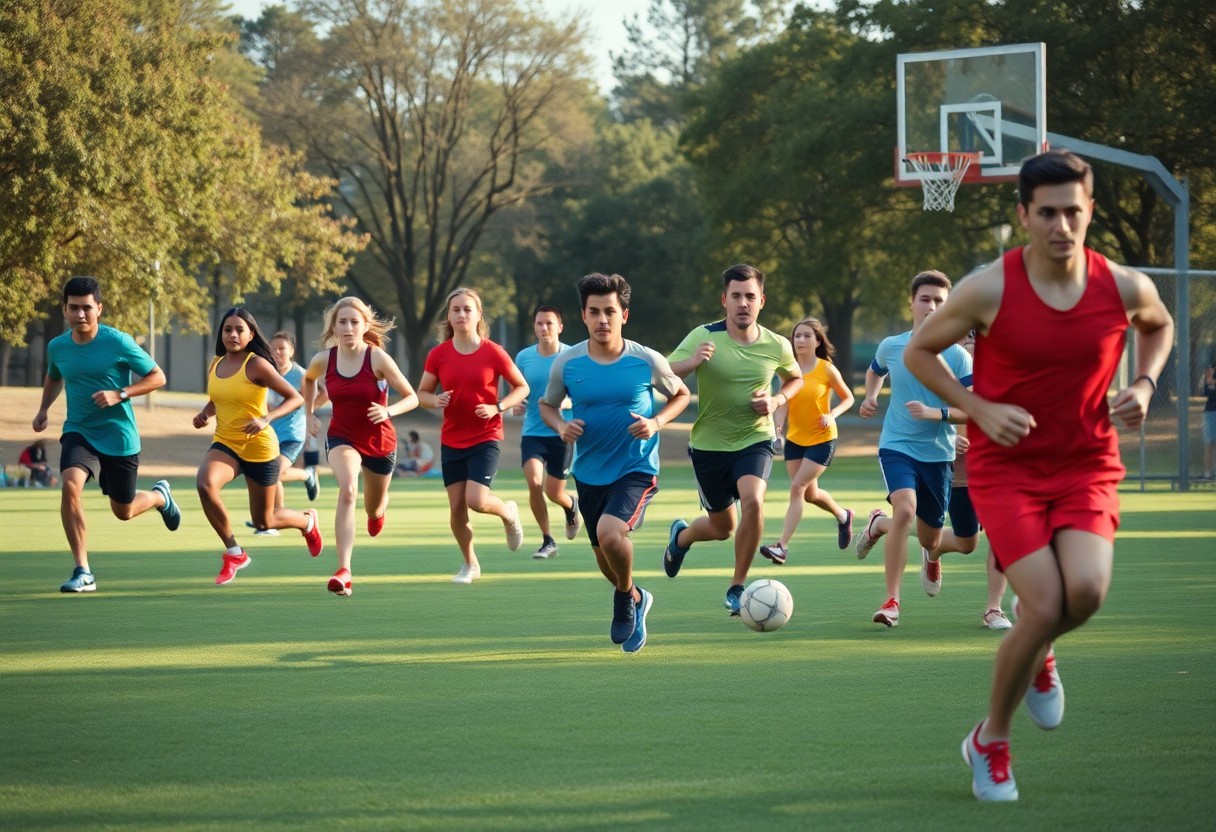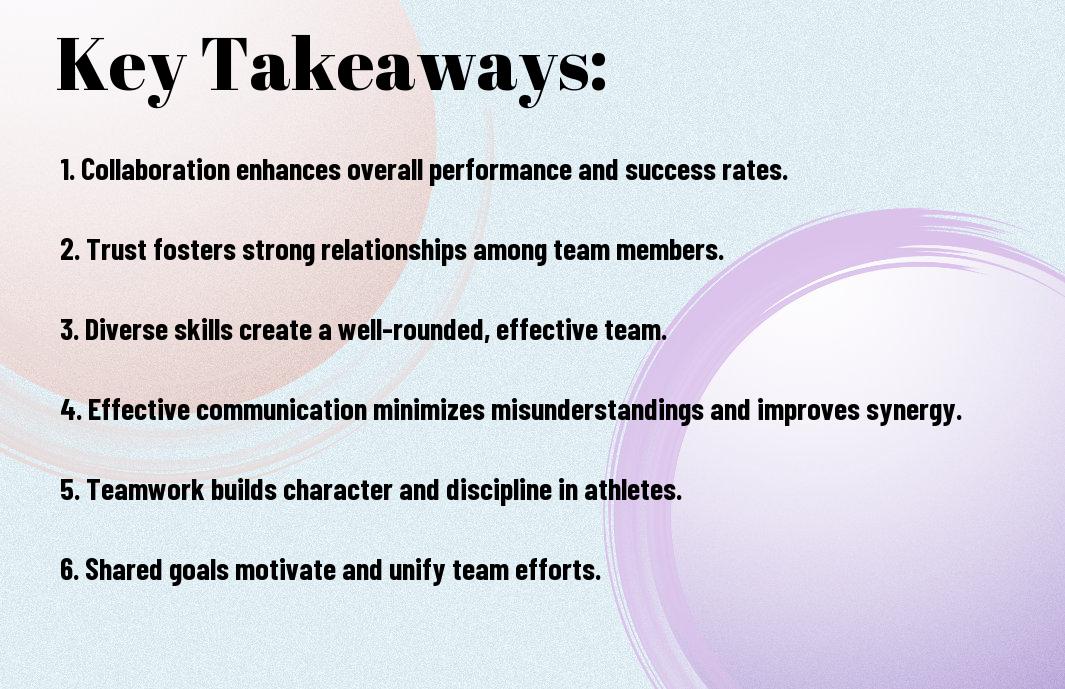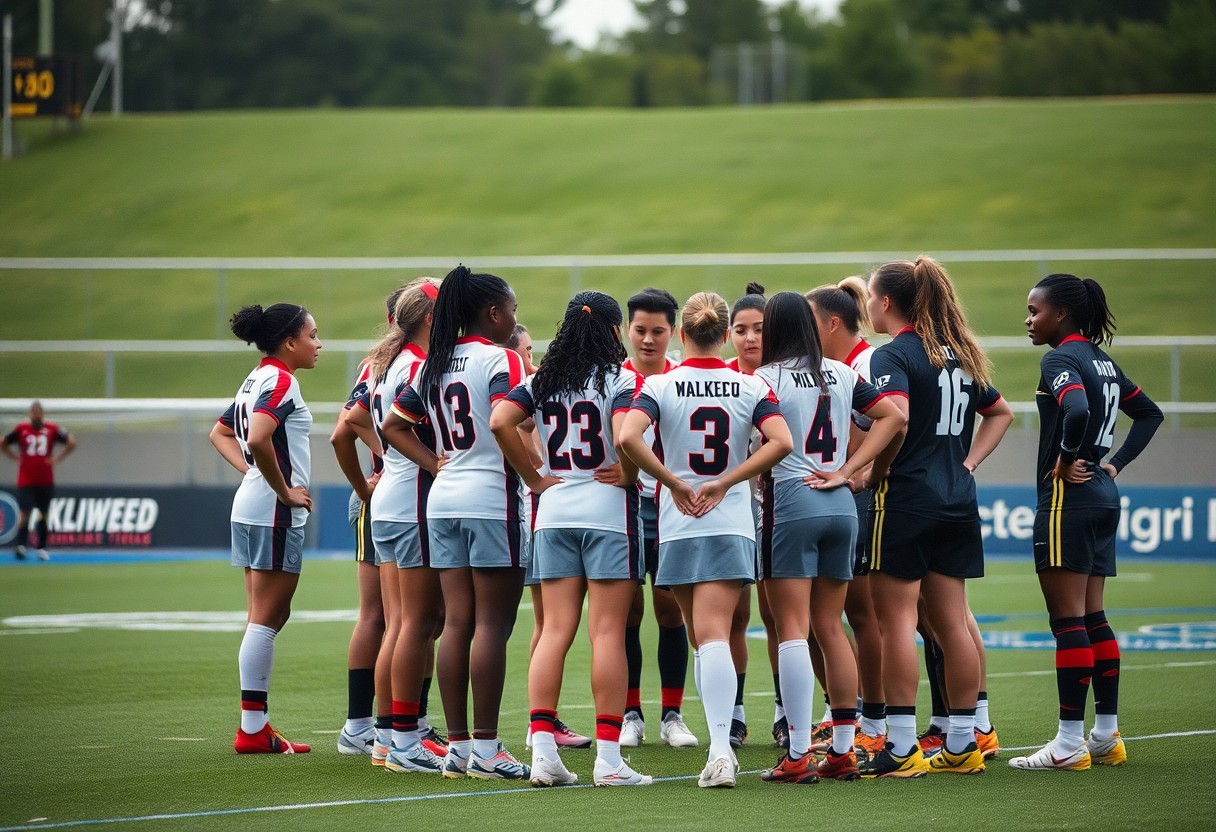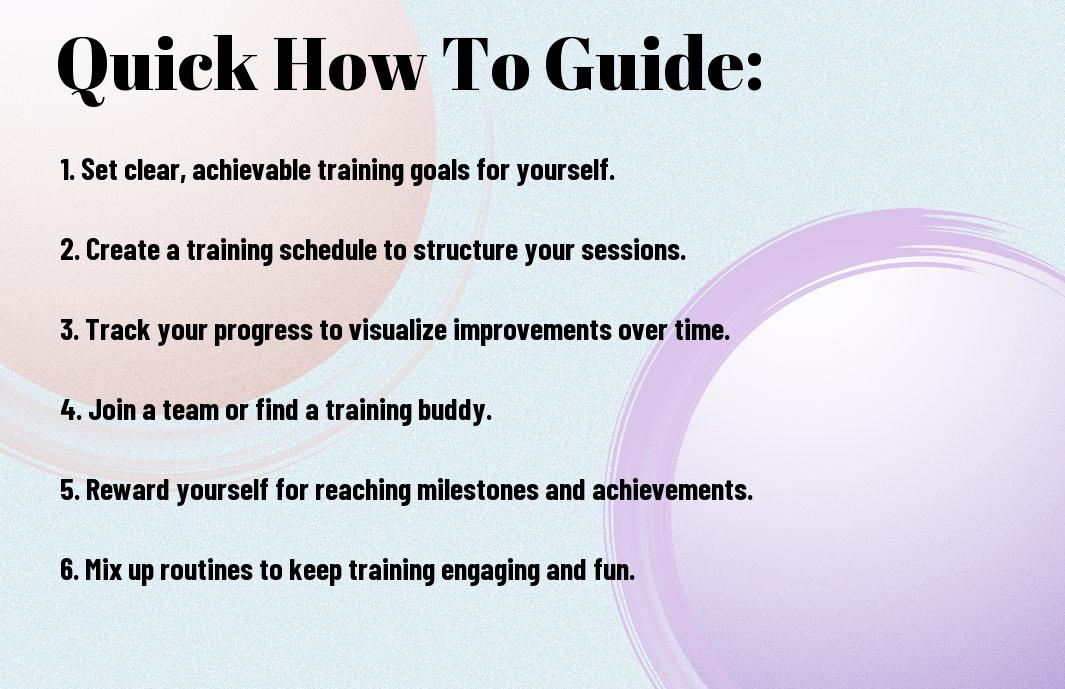Tips for staying fit through sports are not just about playing hard; they encompass a holistic approach to your physical and mental well-being. Engaging in sports can enhance your fitness levels, boost your mood, and foster social connections. In this article, you’ll discover practical strategies that empower you to make the most of your athletic pursuits. Whether you’re a seasoned athlete or just starting, these top 10 tips will help you stay active, motivated, and in shape while having fun!
Key Takeaways:
- Find a sport that you enjoy—selecting an activity you’re passionate about increases consistency and motivation.
- Set realistic goals to track your progress and maintain motivation—small, achievable milestones can lead to long-term success.
- Cross-training can enhance your overall fitness—engage in different sports to prevent burnout and reduce the risk of injury.
- Stay hydrated and maintain a balanced diet—proper nutrition supports performance and recovery during sports activities.
- Work with others to stay accountable—joining a team or finding a workout partner makes exercising more enjoyable and encourages commitment.
Stay Consistent
A key to achieving your fitness goals through sports is consistency. Committing to a regular schedule ensures that you stay active and engaged. The more routine you establish, the easier it becomes to integrate sports into your lifestyle. Whether it’s a weekly game or a daily workout, consistency fosters persistence and better results over time.
Set Regular Schedules
With a defined schedule, you can prioritize your sports activities just like any other important appointment. Establishing specific days and times to engage in sports or workouts makes it easier to stay committed. Treat these appointments seriously; block off your calendar and hold yourself accountable just as you would for work or personal commitments.
Make it a Habit
You’ll find that when you consistently participate in sports, it transforms into a natural part of your daily routine. Over time, these activities become ingrained habits that you look forward to. By gradually increasing your engagement, you can create sustainable practices that contribute to long-lasting fitness. Emphasizing routine and enjoyment in sports will significantly enhance your overall experience.
Consistent participation in sports doesn’t just improve physical fitness; it also nurtures your mental and emotional well-being. Establishing a habit around sports means you’re likely to stick with it even on days when motivation wanes. The brain rewards the body for routine, making you feel energized and accomplished after each session. Celebrate small milestones along the way, and soon engaging in sports will become second nature—making it easier to stay fit and reap the benefits for your overall health.
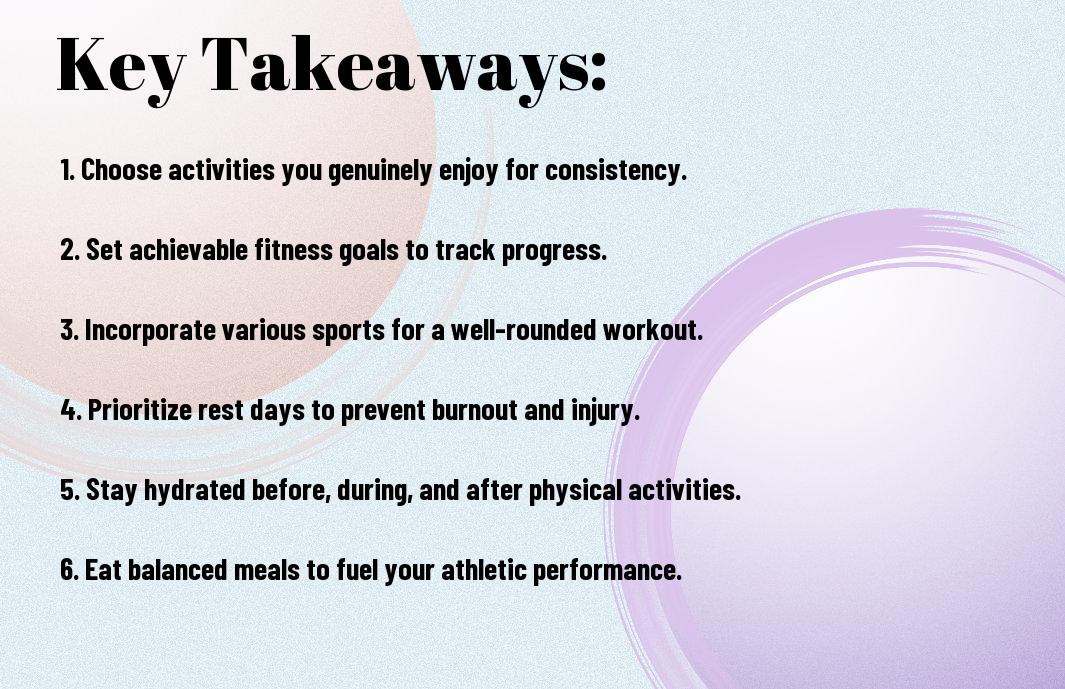
Choose Enjoyable Sports
One of the best ways to stay fit through sports is to choose activities that you find enjoyable. When you engage in sports that you love, it fosters a positive approach towards exercising, making it easier to stick with your fitness routine. Consider what draws you to sports—whether it’s competition, teamwork, or simply the thrill of movement. By selecting enjoyable sports, you’ll be more likely to maintain your motivation and pursue your fitness goals long-term.
Explore Various Options
On your fitness journey, it’s important to explore different sports to find what truly resonates with you. Don’t limit yourself to traditional activities; try out individual sports like tennis or swimming, and team sports such as soccer or basketball. Attend classes or community events to sample unfamiliar activities like pickleball or rock climbing. Diving into diverse options can uncover hidden passions and keep your routine dynamic.
Stay Engaged and Excited
You’ll want to ensure that you stay engaged and excited about your chosen sports. Keeping your enthusiasm alive is key to maintaining an active lifestyle. This can be achieved by setting personal goals, challenging yourself with new skills, or participating in local leagues and tournaments. Surround yourself with friends or join groups to share the experience, enhancing both enjoyment and commitment to staying fit.
You can also inject excitement into your routine by incorporating variety and spontaneity. Try new challenges, like learning a different sport or participating in various fitness events, to keep things fresh. Additionally, consider using apps or wearable fitness trackers that allow you to monitor your progress and celebrate your achievements. Engaging in social media or community forums related to your favorite sports can foster a sense of belonging and motivation, pushing you to stick with your fitness regimen.
Set Realistic Goals
To stay committed to your fitness journey through sports, it’s necessary to set realistic goals that align with your personal abilities and lifestyle. Instead of aiming for extreme changes, focus on objectives that motivate you and are achievable. This balanced approach will keep you engaged and help prevent burnout, allowing you to enjoy the process of improvement while boosting your confidence and resilience in the long run.
Short-term milestones
Even when establishing your fitness goals, breaking them down into short-term milestones can be incredibly effective. These smaller targets not only make your journey feel more manageable but also provide a series of accomplishments to celebrate along the way. This encourages sustained motivation and helps you track your progress, ensuring that you stay on course towards your larger ambitions.
Long-term objectives in mind
Now that you’ve set your short-term milestones, it’s time to think about your long-term objectives. Having a clear vision of where you want to be in the future will help guide your daily actions and decisions. It’s necessary to remain adaptable, as your long-term aims may evolve over time, but keeping them in mind will provide a solid foundation for your sports-related fitness journey.
A well-defined long-term objective serves as your north star, guiding your efforts and providing clarity about your end goals. Whether it’s completing a marathon, improving your competitive performance, or simply maintaining physical fitness over the years, your long-term aim is what drives your commitment. Regularly revisiting and adjusting this objective allows you to make informed choices that enhance your performance and well-being, ensuring that your efforts are consistently aligned with your ultimate aspirations.
Mix Up Activities
Now, incorporating a variety of sports and physical activities into your fitness routine is vital for maintaining enthusiasm and engagement. By mixing up your activities, you not only keep yourself motivated but also challenge your body in new ways, preventing plateaus in performance and ensuring continuous improvement. Try incorporating different sports, fitness classes, or outdoor adventures to diversify your workout plan and keep things exciting.
Avoid monotony in workouts
The key to staying committed to your fitness journey is to avoid monotony in your workouts. Doing the same exercises daily can lead to boredom, making it easy to lose motivation. By constantly changing your routine, you’ll keep your workouts fresh and enjoyable, making it easier to stay on track and reach your fitness goals.
Stimulate different muscle groups
Clearly, engaging in a variety of sports allows you to stimulate different muscle groups throughout your body, enhancing overall strength and conditioning. By mixing activities such as swimming, cycling, or playing team sports, you can target various areas, leading to improved balance and functional fitness.
To get the most benefit from varying your activities, focus on sports that utilize different movement patterns and muscle groups. For instance, while running primarily works the lower body, incorporating swimming engages your upper body, core, and legs. This not only prevents overuse injuries from repetitive motion but also supports well-rounded physical development. By balancing activities, you can enhance your athletic performance and ensure your body remains agile and strong.

Prioritize Nutrition
After incorporating sports into your fitness routine, don’t overlook the importance of nutrition. A well-balanced diet fuels your performance and recovery, ensuring you get the most out of your activities. By prioritizing your nutrition, you provide your body with the necessary nutrients it needs to stay strong and resilient, helping you achieve your fitness goals and enjoy a better sports experience.
Fuel with Balanced Meals
Meals should consist of a healthy mix of carbohydrates, proteins, and fats. This balance is key to sustaining your energy levels during workouts and facilitating muscle recovery afterwards. Aim to include whole grains, lean proteins, and plenty of fruits and vegetables in your meals to ensure that your body receives comprehensive nourishment.
Stay Hydrated Consistently
The act of hydration is just as important as your dietary choices. Keeping your body well-hydrated supports your overall performance in sports, aids in recovery, and reduces the risk of injuries. Make sure to drink water regularly throughout the day, especially before, during, and after physical activities for optimal results.
Hydrated athletes experience better endurance and concentration levels. It’s necessary to recognize your body’s hydration needs, which can vary based on intensity and environmental conditions. Carry a water bottle with you and set hydration reminders to ensure you are consistently replenishing fluids, as adequate hydration can significantly enhance your athletic performance.
Warm Up Properly
Once again, warming up properly is crucial for anyone engaging in sports. A thorough warm-up prepares your muscles and joints for physical activity, increasing blood flow and enhancing flexibility. Carving out at least 10 minutes to engage in dynamic stretches and light aerobic activity can set the tone for a successful workout or game. By making this a habit, you can enjoy the benefits of improved athletic performance while minimizing the risk of injury.
Prevent Injuries Effectively
On a practical note, preventing injuries should be a top priority for every athlete. An effective warm-up routine focuses on increasing muscle temperature and elasticity, leading to reduced strain on your body. Targeting the specific muscle groups you’ll be using during your sport will help your body adapt and perform optimally while warding off common injuries.
Enhance Performance Significantly
Significantly, a proper warm-up can enhance your athletic performance by boosting your overall readiness for physical activity. When your body is warmed up, your muscles operate more efficiently, enabling better coordination and reaction times. This subprocess lays the groundwork for improved speed, agility, and endurance, allowing you to push your limits during play.
Preventing energy loss through effective warm-ups can lead to greater success in your sporting endeavors. When you prioritize warming up, you not only set a strong foundation for your physical capabilities but also enhance your mental readiness. Embracing this preparatory stage leads to sharper focus and subsequently a more exhilarating performance. In the competitive world of sports, elevating your game with proper warm-up practices is a smart investment in your overall athletic journey.
Rest and Recover
Not prioritizing rest and recovery can hinder your performance and increase the risk of injury. While physical activity is crucial for staying fit, your body needs time to heal and adapt. Incorporating rest into your routine allows your muscles to recover, replenishes energy levels, and keeps you motivated to train. Without adequate recovery, you may experience fatigue, decreased performance, and a heightened chance of overuse injuries. Embrace the importance of rest to sustain your sports engagement and overall fitness along your journey.
Listen to your body
Little adjustments in your training can make a big difference. Pay attention to how your body feels during and after activity. If you notice persistent fatigue, pain, or discomfort, it might be time to ease off or take a break. Being attuned to your body’s signals helps you avoid overtraining and ensures that you are performing at your best when you engage in your favorite sports.
Schedule rest days
Schedule regular rest days in your training routine to allow your body to recuperate. These days are crucial for physical and mental recovery, helping to prevent burnout. By consistently including rest days, you give your muscles time to repair, restore energy levels, and reduce the risk of injury, ensuring that you remain fresh and motivated for upcoming workouts. A well-planned schedule that incorporates both training and rest will maximize your progress in sports.
It’s beneficial to plan your rest days strategically. For instance, consider following intense training sessions with a day of rest or light activities such as stretching or yoga. This approach not only aids muscle recovery but also prevents mental fatigue from rigorous training. Ensure these rest days are part of your weekly routine so you can recharge and remain engaged in your sport. Balancing activity with recovery will enhance your overall performance and sustain your enjoyment of fitness through sports.
Find a Workout Buddy
Many people find that having a workout buddy can significantly enhance their fitness journey. A companion not only provides accountability but also makes exercising much more enjoyable. Sharing goals and progress with someone else can foster a supportive environment that encourages you to push your limits and stay committed. So, consider teaming up with a friend or fellow sports enthusiast to keep each other on track while having fun.
Boost motivation together
There’s something about working out with a partner that elevates your motivation levels. You can encourage each other to go further, try new activities, and celebrate milestones together. Whether it’s lifting weights or training for a marathon, having a friend by your side can turn a challenging workout into a shared achievement, making you less likely to skip a session.
Make exercising social
If you view exercising as a social activity, it can become much more engaging. Invite friends to join you for a game of basketball or participate in group fitness classes. This approach brings a fun element to your routine and can help you create lasting friendships while staying fit.
It’s crucial to integrate social interactions into your fitness regimen. Plan regular sports meet-ups or join local clubs where you can connect with others who share your interests. This not only helps you remain active but also fosters camaraderie and a sense of community. When you’re surrounded by supportive peers, you’re more likely to stick to your fitness goals and enjoy the process.
Track Your Progress
Unlike many workout routines that can seem aimless, tracking your progress helps provide structure and motivation. By consistently recording your performance, whether it’s endurance, strength, or skill development, you can recognize how far you’ve come. This data allows you to set tailored goals and adjust your training programs effectively. Keeping an eye on your achievements will boost your confidence and keep you engaged in your journey to stay fit through sports.
Use fitness apps
Your smartphone can be a powerful tool in your fitness journey. Utilizing fitness apps allows you to track workouts, monitor your progress, and set specific goals. Many apps also provide instructional videos, allowing you to improve techniques and stay informed about fitness trends. Functionality like reminders and notifications can help keep you accountable, making it easier to stick to your routine and maximize your performance.
Celebrate achievements regularly
If you want to stay motivated, regularly celebrating your achievements is key. Acknowledging your hard work not only boosts your morale but encourages you to push further in your fitness journey. Whether it’s hitting a personal best or simply sticking to your training schedule for a week, recognizing these milestones creates a positive feedback loop that propels you towards your next goals.
Progress is often measured in big leaps, but smaller victories deserve recognition too. Celebrating achievements regularly can involve sharing your success with friends and family or rewarding yourself with a small treat or break. This consistent acknowledgment fosters a sense of accomplishment and reinforces positive behavior. By strategically celebrating your milestones, you create an environment where you feel proud of your efforts and inspired to continue striving for greatness in your fitness routine.
Enjoy Outdoor Activities
Despite the convenience of indoor workouts, engaging in outdoor activities can significantly enhance your fitness routine. Fresh air, varied terrain, and natural sunlight can invigorate your body and mind, motivating you to maintain a consistent exercise schedule. Activities like running, cycling, or playing sports outdoors not only improve your physical health but also encourage social interactions and connection with the environment.
Embrace Nature’s Benefits
Little do you know, spending time outdoors can reduce stress levels and improve your overall mood. Nature has a revitalizing effect on both your body and mind, allowing you to enjoy your fitness journey while experiencing the therapeutic benefits of fresh air and beautiful surroundings. Incorporating outdoor workouts can enhance your workout routine and allow for greater mental well-being.
Expand Fitness Experiences
You might find that stepping outside allows you to explore new forms of fitness that keep your routine fresh and exciting. Instead of sticking to familiar workouts, try hiking, kayaking, or joining a local sports team. These diverse activities can help you build strength, flexibility, and endurance while enjoying the natural beauty around you.
Outdoor adventures not only keep you physically fit but also introduce a sense of adventure to your routine. By participating in activities like rock climbing, trail running, or group sports, you acquire new skills and push your limits, keeping your fitness journey invigorating. Each new experience fosters social connections and camaraderie, making exercising feel like less of a chore and more like a lifestyle you look forward to. Embracing all that outdoor fitness has to offer can elevate your overall health and well-being.
To wrap up
Hence, by incorporating these top 10 tips for staying fit through sports, you can enhance your performance and overall health. Staying hydrated, maintaining a balanced diet, and getting the right amount of rest are just a few important aspects that you should focus on. Additionally, adopting proper techniques and listening to your body can minimize the risk of injury. For further guidance, check out these 10 Tips for Staying Healthy During Sports Practice. Your dedication to fitness will not only improve your game but also enrich your well-being.
Q: What are some important strategies for incorporating physical activity into my daily routine?
A: To integrate physical activity into your daily life, consider setting specific times for workouts and treating them like important appointments. Choose activities that you enjoy, whether it’s team sports, running, or dancing. Additionally, aim to incorporate movement into your day by taking the stairs instead of the elevator, walking or biking for short trips, and engaging in active hobbies. Mixing variety into your routine can also keep it interesting and motivate you to stick with it.
Q: How can sports help improve my mental health while staying fit?
A: Participating in sports is an excellent way to boost your mental health. Physical activity triggers the release of endorphins, which can help reduce stress and anxiety. Team sports, in particular, foster social connections and a sense of community, contributing positively to mental well-being. Additionally, setting and achieving fitness goals through sports can enhance self-esteem and foster a sense of accomplishment, further benefiting mental health.
Q: What role does nutrition play in staying fit through sports?
A: Nutrition plays a significant role in optimizing athletic performance and overall fitness. Consuming a balanced diet rich in whole foods, including fruits, vegetables, lean proteins, and whole grains, fuels your body for physical activity. Proper hydration is also important for maintaining performance and preventing fatigue during workouts. Tailoring your meal plan to align with your sports activities can provide the necessary energy and help with recovery, ultimately keeping you motivated to stay active.
